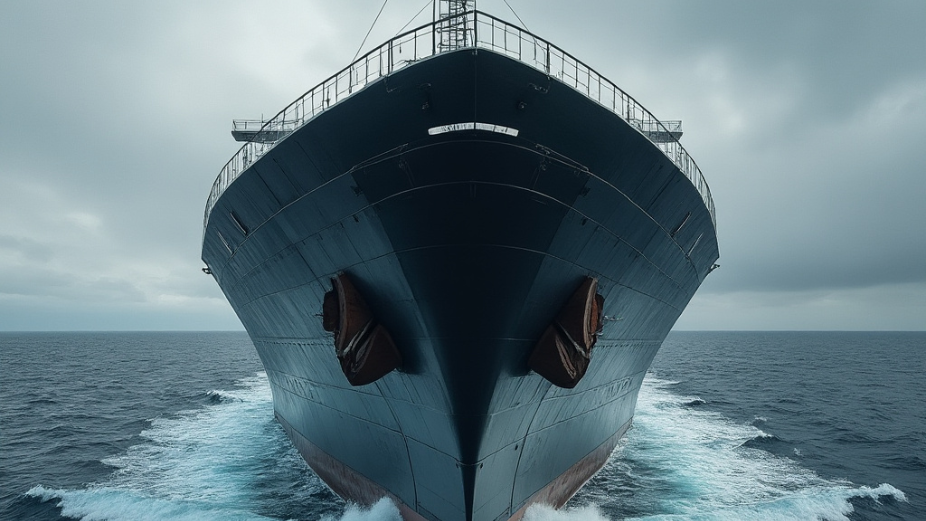
Today, on World Maritime Day, we reflect on the International Maritime Organization’s (IMO) theme: “Navigating the future: safety first!” This theme emphasises the importance of enhancing maritime safety and security, protecting the marine environment, and keeping pace with technological innovation. For the Maldives, an island nation intimately connected to the sea, maritime safety is deeply linked to the regional security dynamics of the Indian Ocean.
The Maldives at the Heart of the Indian Ocean
The Maldives lies along crucial international shipping routes in the Indian Ocean. This strategic position offers significant economic opportunities through trade and tourism but also presents various security challenges. The safety of its maritime domain is not merely a national concern but a regional imperative that affects the flow of global commerce and the stability of neighbouring countries.
Intertwined Challenges of Maritime Safety and Regional Security
Maritime safety in the Maldives is influenced by several interconnected regional security issues. Piracy and armed robbery, though reduced in recent years, remain threats in certain parts of the Indian Ocean. The Maldives must remain vigilant to protect vessels and ensure the secure passage of ships through its waters. Transnational crimes such as drug trafficking, human smuggling, and illegal fishing pose significant risks, threatening national security and potentially disrupting the social and economic fabric of the nation.
Environmental threats also have profound implications. Pollution and the overexploitation of marine resources can lead to ecological degradation, affecting the livelihoods of those dependent on the sea. Additionally, geopolitical tensions in the Indian Ocean, where global powers vie for influence, can create uncertainties that impact maritime safety and the overall stability of the region.
Collaborative Efforts to Enhance Maritime Safety
Recognising that regional challenges require collective action, the Maldives actively participates in international and regional initiatives. Through the Indian Ocean Rim Association (IORA), the Maldives collaborates with neighbouring countries on maritime safety, security, and disaster risk management.
While the South Asian Association for Regional Cooperation (SAARC) has been underutilized, the Maldives and its regional partners have the potential to leverage this platform to address security issues more harmoniously, fostering coordinated responses to shared threats through collaborative problem-solving.
Partnerships with major powers also play a crucial role. By working with larger nations like neighbouring India, the Maldives benefits from shared resources and expertise, enhancing its maritime capabilities and contributing to regional security efforts.
Strengthening National Capabilities
To effectively address the complex interplay between maritime safety and regional security, the Maldives focuses on strengthening its national capabilities. Enhancing maritime law enforcement is a priority, with efforts to improve the capacities of the Maldives National Defence Force (MNDF) Coast Guard. This includes better monitoring and response mechanisms to address incidents promptly.
Investing in technology is another critical area. The adoption of advanced surveillance systems and communication networks aids in detecting and preventing illegal activities. Capacity building through training and resource provision for personnel involved in maritime security strengthens the nation’s ability to safeguard its waters and respond to emerging challenges.
Protecting the Marine Environment
Environmental stewardship is a vital component of maritime safety for the Maldives. Implementing sustainable fishing practices ensures the longevity of marine resources, which are essential for the country’s food security and economic prosperity. Enforcing strict regulations on waste disposal and shipping practices helps protect marine ecosystems from pollution.
The Maldives is also a vocal advocate in global discussions on climate change. Highlighting the existential threats posed by rising sea levels and extreme weather events, the nation calls for international action to address these pressing issues. Protecting the marine environment is not only an ecological concern but also a matter of national survival.
Embracing Technological Innovation
Keeping pace with technological advancements is essential for enhancing maritime safety and efficiency. The Maldives must upgrade navigational aids and adopt modern systems to reduce the risk of accidents and improve maritime operations. Exploring renewable energy sources for vessels aligns with environmental goals and reduces dependence on fossil fuels, contributing to a more sustainable maritime industry.
Digital transformation efforts, such as implementing electronic documentation and communication systems, enhance compliance with international regulations and streamline maritime administration. Embracing technology enables the Maldives to anticipate future challenges and position itself proactively in the regional maritime landscape.
Charting a Collaborative Course
“Navigating the future: safety first!” serves as a guiding principle for the Maldives. By prioritising maritime safety and engaging in regional cooperation, the nation aims to address shared security challenges effectively. This collaborative approach enhances the safety of maritime operations and contributes to the stability and prosperity of the entire Indian Ocean region.
For the Maldives, maritime safety is deeply connected to the regional security dynamics of the Indian Ocean. On this World Maritime Day, the Maldives must reaffirm its commitment to ensuring safety at sea by strengthening national capabilities, fostering international partnerships, and embracing innovation. By navigating the future with safety as a priority, the Maldives contributes to a secure and sustainable maritime environment for all who depend on these vital waters.












